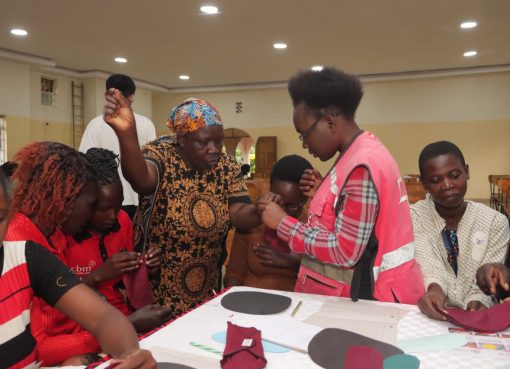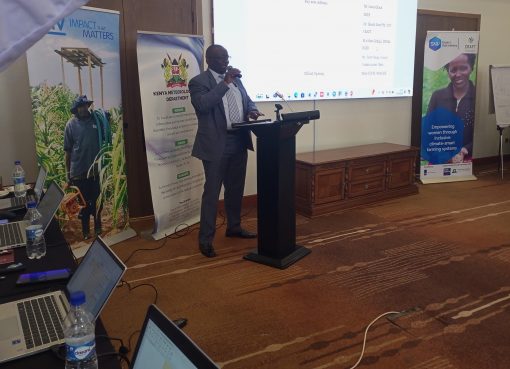Chief Justice (CJ) Martha Koome has said the Judiciary’s arbitration and mediation programme has slashed the time it takes to settle cases in Kenyan courts to about two months, offering relief for businesses and individuals hard-hit by lengthy and costly litigation.
Koome indicated that increased uptake of Alternative Justice Systems (AJS) by litigants in Kenya would result in reduction in the time of resolution of cases and go a long way in enhancing ease of doing business in the country.
According to Koome who doubles up as the President of the Supreme Court, the conventional way of resolving disputes through court litigation has over the years proved problematic to many Kenyans amid a shortage of judicial officers and increased case backlog.
According to the CJ, by the end of the 2nd quarter of the 2021/2022 Financial Year, pending cases at the magistrates’ courts increased by 4 per cent from 512,454 the previous Financial Year to 532,369. Out of these 95, 160 have been pending for the last three years.
The CJ however clarified that the AJS system was not applicable in all cases. Cases relating to violence against women, children and criminal cases are still resolved in courts in line with what Koome defined as the “agency principle.”
Speaking when she launched the Nakuru County AJS Action Plan and Small Claims Courts, the Chief Justice affirmed that the Judiciary was keen to promote access to alternative mechanisms of justice beyond courts designed at offering litigants various options in redressing social grievances.
The Supreme Court President observed that though AJS providers were not on the government payroll, the Judiciary has rolled out programmes to ensure that they are educated to continue their civic duty.
The Constitution provides for alternative forms of dispute resolution mechanisms, including traditional approaches, so long as they do not contravene the Bill of Rights, are not repugnant to justice or morality or inconsistent with the Constitution or any written law.
According to the Chief Justice, although these alternative systems have helped reduce the burden on courts in marginalized areas, these mechanisms were meant to strengthen links between formal and informal justice systems rather than replace courts.
In Kenya, the maximum desirable timeline that a case ought to have been finalized from the date of filing is one year hence any case that exceeds one year before a court is considered a backlog.
Koome also affirmed that AJS was not only crafted to deliver speedy justice but also to bring litigants together.
Unlike the current justice system inherited from the British at independence, AJS gives prominence to reconciling the parties and ensuring that delivery of justice doesn’t expand the rift already created by the dispute.
The age-old Alternative Justice Systems found in all communities received official recognition by the Judiciary in August 2020.
“Delays in the hearing and determination of cases not only delay justice to the aggrieved parties but also mean higher spending on legal costs. Over 80 per cent of Kenyans who have been aggrieved by a decision or an action of another person decided to take action but most of them did not actually come to court. So the backlog is likely to drop if we encourage litigants to embrace,” the Chief Justice argued.
Lawyers normally charge fees based on among other things, the number of court appearances on behalf of their clients.
She lauded the AJS for its efficiency, noting that 96 per cent of all decisions made outside court are respected without the need of external enforcement.
While pledging the Judiciary’s resolve to roll out AJS and Small Claims Courts countrywide, Koome explained that chiefs, police officers and prosecutors were being trained on the essence and essentials of AJS and the role of criminal justice systems.
“We are encouraging everyone to come up with their own justice systems that work, that you are proud of and we will promote them and respect the outcomes of those systems,” she added.
In her remarks Deputy Chief Justice Philomena Mwilu stated that Small Claims Courts established under Article 169 and the Small Claims Courts Act 2016, were subordinate courts vested with the mandate of determining cases that involve claims of less than one million shillings through a process she described as characterized with procedural simplicity, flexibility and efficiency.
She said the courts were meant to hear simple cases like sale and supply contracts, property damage and loss and claims from personal injury and should finalize each case within 60 days of filing because the hearing is conducted on a day to day basis.
According to the Small Claims Court Act, cases filed at the court are heard and determined on the same day or proceedings are conducted on a day-to-day basis until the final determination. The court does not demand strict observance of technical procedures and the process is easier to follow.
“What this means is that the Judiciary is promoting access to alternative mechanisms of access to justice beyond courts. The Small Claims Courts will reduce the cost of doing business in the country by ensuring that commercial disputes are resolved within 60 days. This means that the burden on courts in resolving larger commercial disputes will reduce and thus also increase efficiency in that category of cases as well,” she added.
“They also aid the Judiciary vision by dismantling the systemic and informal barriers to access justice which include high costs of litigation, delays in hearing and determination of cases, the problem of backlog of cases, perceptions of corruption, and geographical distance to court stations,” said Mwilu.
The Deputy CJ said the Judiciary is rolling out the Small Claims Courts to other parts of the country, following a remarkable performance by the Small Claims Courts at Milimani where 2,347 out of 5,080 matters filed at the court were heard and determined within 59 days.
The determined matters accrued over Sh501 million in value, according to the Deputy CJ.
In 2015, former Chief Justice Willy Mutunga appointed 12 members to the Mediation and Accreditation Committee to facilitate and strengthen the alternative dispute resolution process.
The committee, then chaired by Justice Alnashir Visram, was responsible for determining the criteria for the certification of mediators, proposing rules for certification of mediators, maintaining a register of qualified mediators, enforcing such code of ethics for mediators as may be prescribed and setting up appropriate training programmes for mediators.
The AJS policy was drafted by the Taskforce on Informal Justice Systems gazette by Mutunga in May 2016.
Governor Lee Kinyanjui noted that in Kenya, leading disputes in the corporate sector have gone into mediation and cited an incident where Kenya Revenue Authority and a private manufacturing firm in Naivasha Sub-County were able to reach an amicable settlement over a tax dispute running into billions of shillings that would have led to the closure of the latter’s factory.
“Mediation was able to improve the relationship between the parties and provide a win-win settlement for both parties. It cut costs and time that would have been spent if the matter were to be litigated,” Kinyanjui added.
The Governor said the Small Claims Courts were a key driver of the Judiciary’s agenda of deepening access to justice through simplifying the procedure, timely disposal of proceedings, fairness of the process, and reasonable court fees.
Operationalization of the courts, he added, will enhance access to justice by expanding the reach of formal justice to areas not served by existing court systems as well as to facilitate access to justice for claimants currently unable to access mainstream judicial services for various reasons.
“AJS is highly encouraged for businesses as opposed to litigation. I would urge companies to adopt mediation structures and policies if they have already not done so. It is also prudent to have mediation as a dispute resolution option during contract drafting,” Kinyanjui observed.
By Anne Mwale





